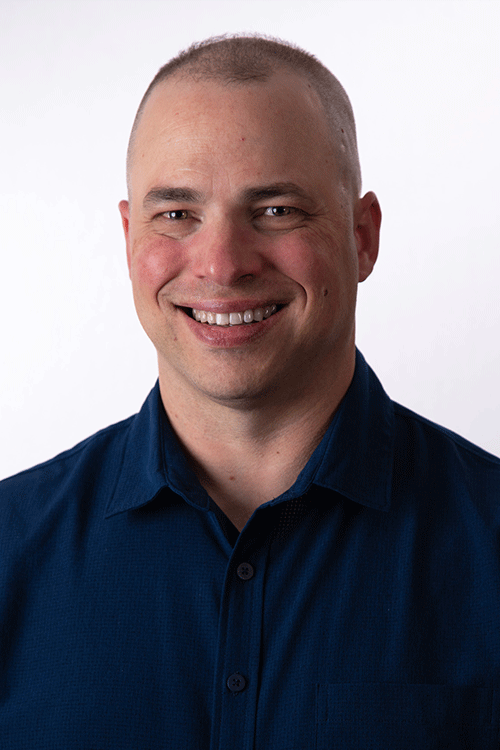
MAY 22, 2024 — Power is an intangible characteristic that is often hard to measure. A recent study by UTSA faculty member Stephen Schwab tackles this concept while examining how physician care is influenced by power in the U.S. military. The study, “How Power Shapes Behavior: Evidence from Physicians,” appeared this month in Science magazine.
Utilizing data from the U.S. Military Health System, Schwab, an economist, and his colleague, Manasvini Singh, an assistant professor at Carnegie Mellon University, analyzed data from 1.5 million emergency department visits to examine how variations in the power differential between doctors and their patients impacted health care outcomes.
“The military is a perfect testing ground to examine this issue due to the hierarchy of rank,” said Schwab, assistant professor of management in the Carlos Alvarez College of Business at UTSA. “Patients come in wearing their rank, so it is easy for physicians to identify who is ranked above and below them. This issue of how care is delivered, and the equity of care and power in society is important.”
Schwab and Manasvini’s research addressed several questions. First, how does a power differential impact patient care? Secondly, how are patient outcomes affected when a physician cares for both high- and low-power patients. Finally, they studied how gender and race affect this power dynamic.
 Stephen Schwab
Stephen Schwab“We found that when the patient was higher ranking than the physician, they received around 3.6% more resources,” said Schwab, a retired lieutenant colonel in the U.S. Army. “If physicians are allocating extra effort with the higher-ranked patient, what happens to other lower-ranking patients that they are seeing? We observed that lower-ranking patients received less care when there was a higher-ranking patient being seen by their physician, and it had negative health outcomes for them.”
Expanding their research to not only include rank but also account for differences in race and gender, the team found compelling results. Overall, higher-power individuals still received more effort. White physicians gave higher-power black patients similar levels of effort as lower-power white patients, while black physicians only responded to the power of black patients. Female physicians responded less to the patient’s gender for lower-power patients, but increased their efforts when treating higher-power female patients. Surprisingly, all female patients received more effort from male physicians with lower-power female patients receiving about the same resources as higher-power male patients.
“Doctors are humans, and they suffer from the same biases that all humans do,” Schwab said. “We believe that power is a combination of many different characteristics, but in this study an individual’s rank carried the greatest weight. In a civilian context, other factors may be weighed differently.”
Schwab, whose research interests include health care management, health economics, organization theory and labor economics, shared that these biases could be overcome if organizations develop policies, conduct training and increase awareness of these issues to promote better care for all patients.
Health care has been a long-term passion for Schwab. He began working as an EMT while in college, then later served in the medical service core in the Army. Obtaining advanced degrees in economics and health care management through the military, he became chief financial officer for the Walter Reed Army Institute of Research and for Brooke Army Medical Center.
“Health care is so impactful,” he said. “It can impact one’s ability to participate in the labor force as well as a person’s mental health. Power dynamics can create disparities within society, and we are looking at solutions to reduce those disparities.”
Schwab also relishes the opportunity he has to make a difference by teaching at UTSA. Teaching undergraduates, graduate students and executives, he values UTSA’s mission of helping first-generation students follow their dreams. At UTSA, 45% of students will be the first in their families to receive a bachelor’s degree.
Schwab notes that his study with Manasvini has broader implications than the specific questions that they studied.
“Individuals can have more power than they realize,” he concluded. “People need to be cognizant of how they are wielding that power.”
UTSA Today is produced by University Communications and Marketing, the official news source of The University of Texas at San Antonio. Send your feedback to news@utsa.edu. Keep up-to-date on UTSA news by visiting UTSA Today. Connect with UTSA online at Facebook, Twitter, Youtube and Instagram.
Move In To COLFA is strongly recommended for new students in COLFA. It gives you the chance to learn about the Student Success Center, campus resources and meet new friends!
Academic Classroom: Lecture Hall (MH 2.01.10,) McKinney Humanities BldgWe invite you to join us for Birds Up! Downtown, an exciting welcome back event designed to connect students with the different departments at the Downtown Campus. Students will have the opportunity to learn about some of the departments on campus, gain access to different resources, and collect some giveaways!
Bill Miller PlazaCome and celebrate this year's homecoming at the Downtown Campus with food, games, giveaways, music, and more. We look forward to seeing your Roadrunner Spirit!
Bill Miller PlazaThe University of Texas at San Antonio is dedicated to the advancement of knowledge through research and discovery, teaching and learning, community engagement and public service. As an institution of access and excellence, UTSA embraces multicultural traditions and serves as a center for intellectual and creative resources as well as a catalyst for socioeconomic development and the commercialization of intellectual property - for Texas, the nation and the world.
To be a premier public research university, providing access to educational excellence and preparing citizen leaders for the global environment.
We encourage an environment of dialogue and discovery, where integrity, excellence, respect, collaboration and innovation are fostered.